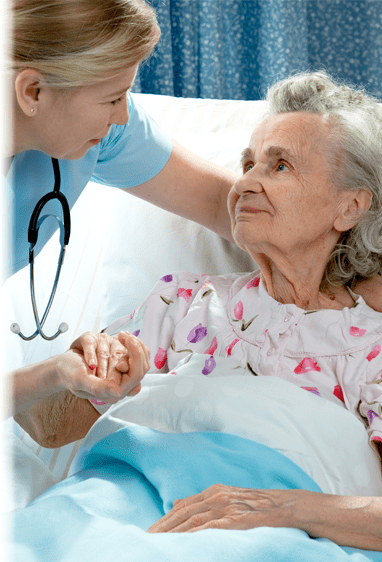Care homes by their very nature face higher numbers of illnesses and injuries than almost any other establishment. Residents are some of the most vulnerable in society due to age-related conditions, chronic disease and disability, meaning that they can be at greater risk from accidents and infection. As such, care staff need to be continually aware of the potential risks they face and what action can be taken to mitigate these risks.
Table of Contents
A growing problem
Unfortunately, the number of residents from care homes being admitted to hospital in an emergency continues to grow. The most recent statistics show that such emergency admissions have risen 63% in four years from 13,906 in 2011/12 to 22,682 in 20114/15. This is unlikely to decrease without concerted action and these numbers are already high given there are estimated to be in the region of 426,000 people living in care homes in the UK.
Preventing injury
Slips, trips and falls can be catastrophic for the elderly and the statistics make for grim reading. According to the charity Age UK, falls accounted for the deaths of 3,653 people aged 65+, and were the main cause of the 70,000 hip fractures that occur in the UK annually. One in five of those who fracture their hips die within three months.
Therefore, reducing the chances of a slip, trip or fall should be a priority for care home staff. The Health and Safety Executive highlights that the main causes of slips, trips and falls are:
- slippery or wet surfaces caused by water and/or other fluids
- slippery surfaces caused by dry or dusty floor contamination such as lint or talcum powder
- obstructions, both temporary and permanent
- trip hazards, uneven surfaces and changes of level, e.g. unmarked ramps
- poor levels of lighting.
Many of these hazards can be mitigated with careful thought and planning. For example, preventing floors getting unnecessarily wet can reduce slip risks. Citron Hygiene commercial mats can help achieve this by trapping the dirt and moisture that can be walked in to a building. It is also worth looking at how residents dry their hands after washing as this can prevent water from dripping on to the floor. The Citron Pebble Hand Drier quickly and thoroughly dries hands. Both of these can help to reduce wet floors as well as the frequency of cleaning.
Minimising the spread of illness
The main cause of winter deaths in the over 75s in 2014/15 were respiratory illnesses, such as pneumonia, which totalled 13,100. These illnesses are spread by coming into contact with germs either in the air, on surfaces or on people. The transmission of disease can be reduced by thoroughly washing hands with an antibacterial soap, and drying them well. This means you must provide effective hand drying solutions.
As the old saying goes coughs and sneezes spread diseases, so Citron Hygiene have come up with an ingenious air care system solution called CitronClear which not only treats the air through fragrance with its odour neutralising qualities, but actually cleanses the air of airborne and surface bacteria. No harmful chemicals or waste is produced by the CitronClear and it is completely effective against fumes, malodours, bacteria, viruses and moulds.
Why not book a free consultation from one of our experienced team to see how your facilities could be made safer and at the same time more cost effective.
References
Oxford Journals, Public Health Journal, The Telegraph, Health and Safety Executive, Age UK
